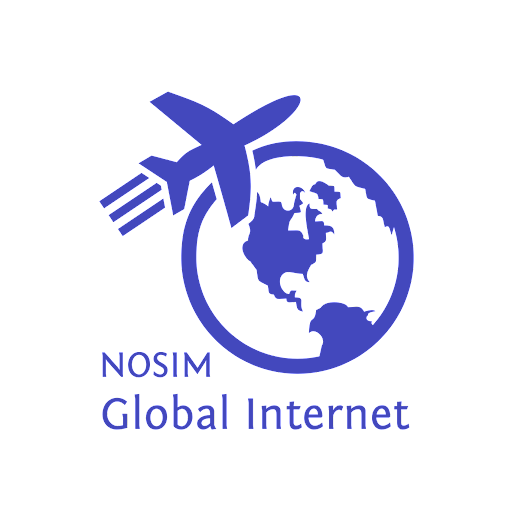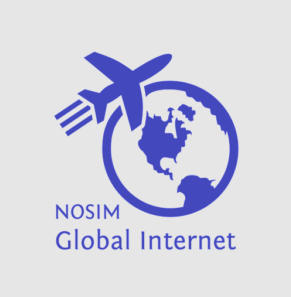The adoption of eSIM (embedded SIM) technology is revolutionising the way businesses operate across industries.
From enhancing connectivity to streamlining operations, eSIM solutions are proving to be a game-changer for organisations worldwide.
In this article, we present a collection of real-world case studies showcasing how various industries have successfully implemented eSIM technology to achieve tangible business benefits.
Why eSIM Technology Is Transforming Businesses
Before diving into the case studies, it’s important to understand why eSIM technology is gaining traction.
Unlike traditional physical SIM cards, eSIMs are embedded directly into devices, allowing for remote provisioning and management.
This flexibility enables businesses to scale operations, reduce costs, and improve connectivity, making it an ideal solution for modern enterprises.
Logistics: DHL Streamlines Fleet Management With eSIM
Source: Pexels
The Challenge:
DHL, a global logistics leader, faced challenges in managing its fleet of delivery vehicles.
Traditional SIM cards were cumbersome to install and replace, and frequent connectivity issues disrupted real-time tracking.
The Solution:
DHL adopted eSIM technology to enable seamless connectivity across its fleet.
Devices equipped with eSIMs allow for real-time GPS tracking, predictive maintenance alerts, and efficient route optimisation.
The Outcome:
Improved Efficiency: Real-time data reduced delivery times by 20%.
Cost Savings: Eliminated the need for physical SIM replacements.
Enhanced Reliability: Continuous connectivity ensured no disruptions in tracking.
Healthcare: Philips Enables Remote Patient Monitoring
Source: Pexels
The Challenge:
Philips, a leading healthcare provider, sought to implement remote patient monitoring systems but struggled with inconsistent connectivity for IoT-enabled medical devices.
The Solution:
By integrating eSIMs into wearable health devices, Philips ensured reliable connectivity regardless of location.
Patients could transmit vital health data to doctors in real time, enabling proactive care.
The Outcome:
Better Patient Outcomes: Early detection of health issues reduced hospital readmissions by 15%.
Scalability: eSIMs allowed for easy onboarding of new devices and patients.
Data Security: Enhanced encryption protocols ensured patient data remained secure.
Retail: Walmart Enhances Customer Experience with Smart Kiosks
Source: Pexels
The Challenge:
Walmart, a retail giant, wanted to deploy smart kiosks in multiple locations but faced logistical hurdles in managing SIM cards for each device.
The Solution:
eSIM technology enabled Walmart to remotely provision and manage connectivity for its kiosks.
This allowed for instant updates, promotions, and inventory checks at any location.
The Outcome:
Increased Sales: Interactive kiosks boosted in-store sales by 25%.
Operational Efficiency: Centralised management reduced IT overhead.
Customer Satisfaction: Faster service improved overall shopping experience.
4. Manufacturing: Siemens Supports IoT-Driven Automation
Source: Pexels
The Challenge:
Siemens, a global manufacturing leader, aimed to implement IoT-driven automation but encountered difficulties in maintaining consistent connectivity for sensors and machinery.
The Solution:
eSIMs were integrated into IoT devices, ensuring uninterrupted communication between machines and central systems.
Remote provisioning allowed for quick updates and troubleshooting.
The Outcome:
Higher Productivity: Automated processes increased output by 30%.
Reduced Downtime: Predictive maintenance alerts minimised equipment failures.
Cost Efficiency: Lowered operational costs through streamlined connectivity.
5. Travel And Hospitality: Marriott Simplifies Connectivity For Guests
Source: Pexels
The Challenge:
Marriott International, a luxury hotel chain, wanted to offer guests seamless internet access but found traditional SIM-based solutions impractical for international travellers.
The Solution:
Marriott deployed eSIM-enabled devices that provided guests with instant access to local networks upon arrival. This eliminated the need for physical SIM cards or roaming charges.
The Outcome:
Enhanced Guest Experience: Positive feedback led to a 10% increase in repeat bookings.
Revenue Growth: Additional services like premium data plans generated extra income.
Global Reach: Supported travellers from over 100 countries without compatibility issues.
6. Automotive: Tesla Powers Connected Vehicles
Source: Pexels
The Challenge:
Tesla, an automotive innovator, aimed to roll out connected car features but faced challenges in managing SIM cards across millions of vehicles globally.
The Solution:
eSIM technology was embedded into Tesla vehicles, enabling features like over-the-air software updates, real-time navigation, and emergency assistance. Remote provisioning ensured seamless activation in different regions.
The Outcome:
Customer Loyalty: Enhanced features drove higher customer satisfaction.
Operational Agility: Reduced time-to-market for new services.
Global Scalability: Supported diverse regulatory requirements across markets.
The Future of eSIM in Business
Source: Pexels
These case studies highlight the transformative potential of eSIM technology across industries.
By addressing connectivity challenges and enabling innovative solutions, eSIMs are empowering businesses to operate more efficiently, scale effectively, and deliver superior customer experiences.
As adoption continues to grow, the possibilities for eSIM applications in business are virtually limitless.
Frequently Asked Questions
What Are The Key Benefits Of eSIM Technology For Businesses?
eSIMs offer cost savings, scalability, enhanced security, and seamless connectivity, making them ideal for modern enterprises.
Can eSIMs Be Used In Any Industry?
Yes, eSIM technology is versatile and can be tailored to meet the specific needs of industries ranging from healthcare to manufacturing.
How Does eSIM Compare To Traditional SIM Cards?
Unlike physical SIMs, eSIMs eliminate the need for manual installation and replacement, offering greater flexibility and ease of management.
By leveraging eSIM solutions, businesses can unlock new opportunities for growth and innovation. Whether you’re looking to streamline operations, enhance customer experiences, or support IoT initiatives, eSIM technology provides a robust foundation for success.
Related To eSIM Success In Business:
Why Digital Nomads Are Switching To eSIMs For Remote Work
Why You Should Consider A 5G Router With eSIM For Your Home Office










